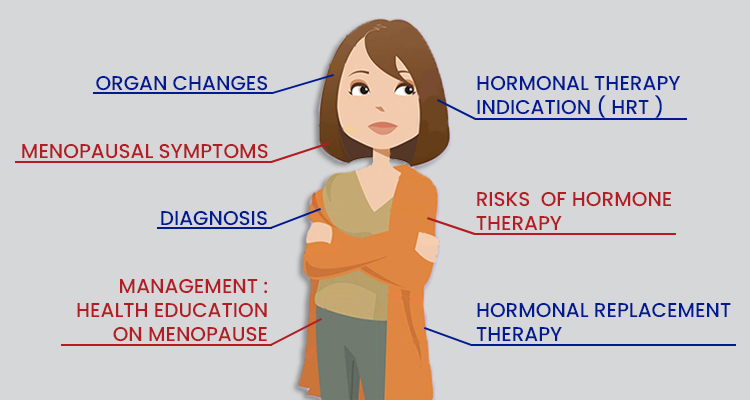
In today’s times, because of improvement in healthcare, women spend one third of their lives in the postmenopausal period. Menopause and postmenopausal ph ase pose various problems and issues in a woman’s life. All these are discussed in detail in this blog.
The word "menopause" literally means the "end of monthly cycles" and is derived from the Greek word pausis (cessation) and the root men (month). It signifies a transition from reproductive to non-reproductive phase and is an unavoidable change that every woman will experience. Menopause is the permanent cessation of her menstrual cycles which is the primary function of the human ovaries. The age of menopause is genetically predetermined. It occurs early in thin women, in women who smoke cigarettes and in severe malnutrition. The age of menopause is 45-55 years. The average age of menopause is 50. In the reproductive period or before menopause, the ovaries in a woman have 2 functions - one of Reproduction and second is the release of the sex hormones like estrogen and progesterone in a steady balance.
In the premenopausal period, which can begin few years prior to menopause, the ovaries gradually produce less estrogen. The menstrual pattern prior to menopause could be irregular periods with or without excessive bleeding and because of the drop in estrogen women experience many symptoms. There is a remote possibility of a woman getting pregnant in this period. Menopausal phase marks the end of menstruation. Once a woman has gone through a period of 12 consecutive months without experiencing a menstrual cycle, she is said to be in the Post menopausal phase.
Women at the menopausal stage need to be supported emotionally; they need counselling about how to manage menopause. This may also help them to overcome anxiety and depression. Certain life style modification is necessary to prevent the occurrence or minimize the effects of menopausal symptoms . Nutritious diet , Supplementary calcium , Exercise , Vitamin D , Cessation of smoking and alcohol , Bisphosphonate and Calcitonin are known to be of benefit . All family members and health practitioners should try, educate and motivate women to follow the following points.
Selective estrogen receptors modulators (SERMs)- Raloxifenen (increase bone minerals density). Clonidine , Paroxetin ( SSRI s) and Gabapentin reduce hot flashes, Phytoestrogens , soy proteins and Vit E may reduce hot flashes.
HORMONAL THERAPY INDICATION ( HRT ) is excellent for relief of menopausal symptoms , relief of vasomotor symptoms like night sweats , vaginal dryness , sleep problems and mild depression for prevention of osteoporosis and to maintain the quality of life in menopausal years . The contraindications to HRT are known history of breast cancer , undiagnosed genital tract bleeding , Estrogen dependent Cancers , history of Deep Vein Thrombosis , Active liver disease , Jaundice , Gallbladder disease , and prior endometriosis.
The benefits V/S the risks of HRT need to be assessed as the risks are very minimal in women of average weight and with no comorbidities . They are most often seen in women with risk factors like obesity, family history of Cancer of breast and Endometrium , Hypertension, Diabetes. Hence, monitoring PRIOR AND DURING HRT THERAPY is mandatory. Physical examination including pelvic examination, Blood pressure recording, Breast examination and mammography, Cervical cytology, Pelvic ultrasonography to measure endometrial thickness.
HORMONAL REPLACEMENT THERAPY is available in many forms Oral estrogen regime conjugated equine estrogen (0.3 or 0.625 mg) given daily for women who have hysterectomy. Estrogen and cyclic progestin’s for woman with intact uterus. Estrogen for 25 days and progestin for the last 12-14 days.
HRT patches come in various dosages and these are small patches which can release hormones into the bloodstream transdermally. The patch needs to be changed twice weekly and possible side effects could be skin irritation and allergy.
HRT gel administration contains 3.2 mg and delivers 50 ug in 24 hrs. It should be applied below the waist line and changed twice a week. The gel works by releasing a consistent dosage of estrogen into the blood stream making the Hormone Replacement Therapy HRT option effective.
HRT implants which are small pellets inserted under the skin periodically once in six months’ supply hormones. These are surgically inserted into the fatty layers of the abdomen under a local anesthetic. Vaginal ring is designed for a woman whose womb has been removed. Vaginal creams which can be applied directly to the vagina by an applicator give relief locally on the lining of the vagina and are beneficial for vaginal atrophy conditions.
So , there are various ways in which a woman can handle her menopause . Menopause is a natural physiological phase in a woman’s life . Its should not stop her from doing whatever she desires . She should take this opportunity to improve her lifestyle and have regular checks to look out for any health issues.
Menopause is the permanent cessation of menstrual cycles, typically occurring between ages 45 and 55.
Symptoms include hot flashes, night sweats, mood swings, vaginal dryness, and sleep disturbances.
Lifestyle changes, a nutritious diet, exercise, and hormone replacement therapy (HRT) may help alleviate symptoms.
Risks include increased chances of breast and endometrial cancers, venous thromboembolic disease, and coronary heart disease.
Consult a healthcare provider if symptoms are severe, or if you have concerns about treatment options and health risks.
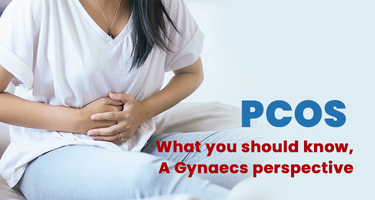
PCOS is a hormonal and Metabolic condition that affects women […]
04 Jun 22

IUI is a simple form of fertility treatment where motile […]
06 Aug 22
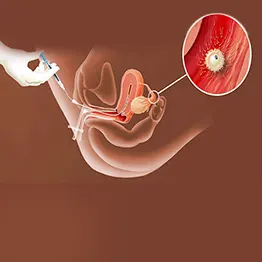
We are happy to have treated more than 20,000 couples with fertility issues. IUI is simple treatment for couples with unexplained Infertility, PCOS, early endometriosis Know More
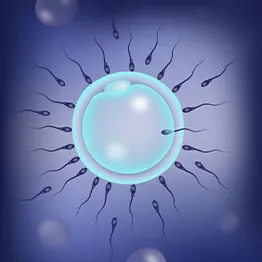
Indicated in couples with tubal blockage, repeated failed IUI and endometriosis. Results range across 40 -50% at our centre Know More
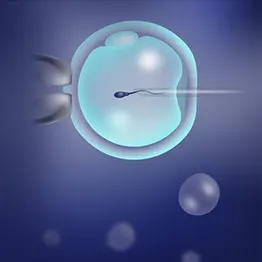
Treatment of choice for male infertility with very low sperm count, obstructive azoospermia and for coupes requiring donor eggs. Know More

Many young men and women have utilized our fertility preservation services in the form of sperm, egg and embryo freezing either for medical or social reasons Know More

More than 3000 women have delivered at our centre. They have had an exceptional experience in antenatal care, delivery and postnatal care. Know More
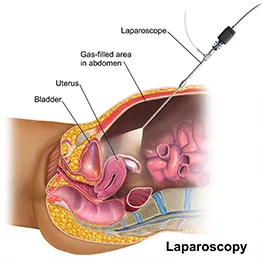
We have been performing all Gynaec surgeries through Laparoscopy for the past 25 years. Advantages are it is safe, less painful Know More
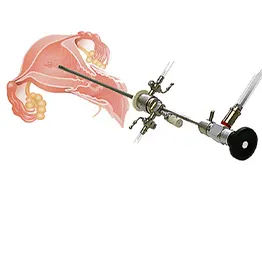
Hysteroscopy has many advantages over traditional D & C. We are equipped with small telescope to diagnose and treat pathologies inside the uterine cavity Know More
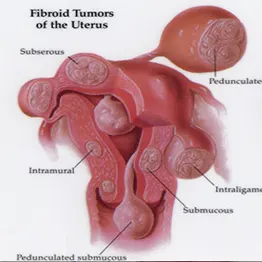
Fibroid causes infertility, pain and excessive menstrual blood loss. They can be operated through Laparoscopy or Hysteroscopy Know More
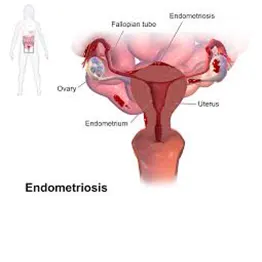
Endometriosis causes infertility and painful periods. Best treatment is initiated by Laparoscopy surgery and drugs Know More
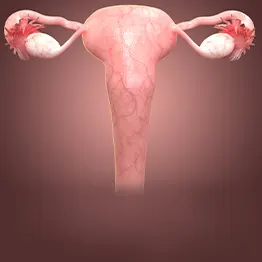
We have been performing laparoscopic hysterectomy for the past 25 years. It is a definitive treatment for heavy menstrual bleeding, fibroids, cancer Know More
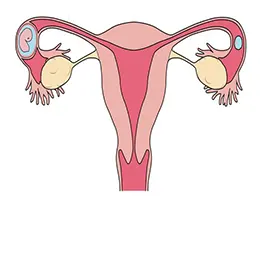
Ectopic is a condition where the pregnancy gets implanted in the fallopian tube instead of the uterine cavity. We have operated many cases laparoscopically Know More
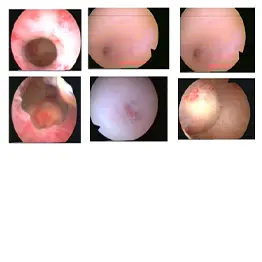
Hysteroscopy helps in evaluating the cause of Postmenopausal bleeding Know More

MD. DGO.,
Gynaec Endoscopy Surgeon Fertility and IVF Consultant
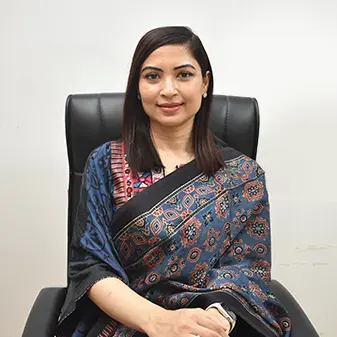
M.S. Obgy,
Fellowship in Reproductive Medicine and IVF (London), Minimal Access Surgery and Ultrasound
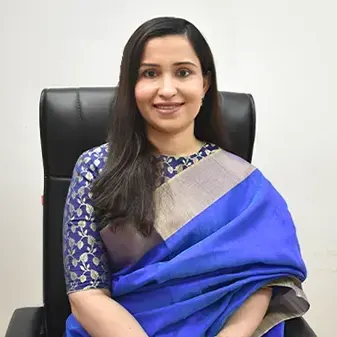
MS, DNB Obgy,
Fellowship in Reproductive Medicine and IVF (London), Minimal Access Surgery and Ultrasound
-Very satisfied.
-Doc Support indeed was very good .
-Nurse Support was absolutely Beneficial and excellent.
-Cleanliness was upto the mark.
-Hospitality made the stay comfortable.
KEEP IT UP!
Harshita Chhajed
We were so ecstatic on 9thapril 2022 as we hold our baby boy in our hands. We are so grateful as we were in the bestest and safest hands. All this was possible because of the talented doctors like you all-Dr Sudha Tandon, Dr Aditi Tandon, Dr Amrita Tandon and Dr Sachin. Dr Sudha Tandon and DrAditi Tandon helped us in our pregnancy journey by making themselves available all the time on phone. All our queries/questions were answered in no time which is by far the best response we could have received during covid times.
All doctors have given us bestest suggestions during our pregnancy journey in which we always had an utmost faith. It was a great time spent with you all during this pregnancy.
Thankyou so much for all the help/assistance/suggestions. We will always recommend Dr Tandon to our friends and relatives.
Sheela C Potdar
Dr Sudha Tandon and her two daughters make you feel comfortable and at ease. The flow of the process was smooth without making the patients wait unnecessarily.
Ashrita Katyal
Staff very polite and cordial.
Clean and neat hospital.
Cheerful ambience.
Doctor was very cooperative understanding and most importantaly non-judgemental. Made talking easier.
Thankyou for this wonderful offer and for making these tests accessible to all.
Odette Fred
-Staff very pleasant and polite.
-Dr too very polite.
-No waste of time.
-Clean place.
-Gives a good feel and not a nervous hospital feel.
Rosa Fred
Dr Sudha Tandon is one of the most oldest and the bestgynac in Chembur. Very good initative taken by them to keep a watch on the womenshealth on the occasion of the womensday.glad to see her daughters doing the job same as their mom.
All the best to both of them.
Thankyou
Satpal Bhambri
Thankyou for arranging this camp and providing services at affordable prices. The entire doctors team and also everyone right from the front desk staff to the staff nurses are really very cordial and soft-spoken.
My mother literally has a OBGY phobia :-o yet when she stepped out of the consulting room,she only told me they are all really great especially Dr AditiMaam.
Keep up the good work! I always recommend your name whenever any relatives/friends ask for a good OBGY in town.
Thankyou
Regards,
Dr Aditi Prabhu
Pratima Prabhu
-Very well organized.
-The staff is very competent.
-Quick process without any difficulties.
-Excellent time Management.
Kavita Bhatti
It is always reassuring to talk to Dr Sudha Tandon, Dr Amrita and Dr Aditi. It is for their expert advise and their compassionate approach that makes me come back to them for all my health related concives. I know I am in good hands.
Sheetal Patil
Thank you for this camp. Was done professionally and good staff.
Thanks again.
Kavita R.
Got to hear from a friend about this women’s day camp. Very well organized camp by Dr Sudha Tandon.
The price works well for all.
Thank-you
Mrs. Harvinder Saggi
I was absolutely satisfied with Doctor Amrita’s Consultation.
She cleared all my queries.
Thank you for having this women’s day camp.
Its really helpful.
Gunwant Saggi
My mother has also been Dr Sudha Aunty’s patient and it was but natural for me to follow same.I would like too extend my gratitude and thanks to Dr Sudha aunty for being there for me at every step.My sincere thanks to Dr Aditi and Dr Amrita who have always had my back and responded to every query and doubt with great promptness. Dr Aditi has been my “go-to-person” in times of anxiety.
A big thank you to all three of there for everything. I couldn’t have pulled this off without your support.
Dr Jayeeta Verma
What is infertility ?
If the couple has regular intercourse, does not use any contraception and still does not conceive within one year, they are said to be infertile. 80-85% of the couples conceive within one year of unprotected intercourse i.e. without the use of any contraceptive. However, the rest 15-20 % who are unable to conceive naturally are said to be infertile and these would require proper evaluation and help for getting pregnant.
Does fertility depend on age?
Yes, in a woman fertility does depend on her age. A young woman is naturally more fertile as she has more number of good quality eggs than a woman who is 35 +. Hence a woman who is 35 + should not wait for a long period for a natural conception and should seek help from a proper fertility expert. Also the chance of genetic abnormalities and medical complications like Hypertension and Diabetes increases with age.
When should a couple seek medical help for infertility?
If the woman is below 35 years and has normal menstrual periods, and the couple has tried for a conception for a year with a frequency of sexual intercourse 3-4 times a week during the fertile period and has yet not conceive, then they need to consult an Infertility expert.
How does body weight, diet & exercise affect fertility?
For increasing the chance of pregnancy, balanced body weight of the woman would be beneficial. Being obese or grossly underweight affects the maturation of eggs in the woman and hence may affect her fertility. Also, a grossly obese woman would have mechanical difficulty in having normal sexual relations. Regular, moderate exercise especially in the form of yogasanas, walking, swimming, or jogging prove beneficial for fertility. It has been observed that strenuous form of exercises for example jogging over 3 miles a day can hamper ovulation and hence may lead to decrease in fertility in the woman. Balanced and nutritious diet help increase the chances of conception and ensure proper growth of the fetus.
Is stress a major factor in infertility?
Chronic stress may interfere with the ovulation, may decrease the sexual desire and hence affect the frequency of sexual intercourse in the couple.
How would one know the cause of infertility?
A detailed history of both partners is very helpful in giving a clue to the cause of infertility. For e.g. anovulation is the cause of infertility in a woman who has irregular periods and who is also obese, blocked fallopian tubes in a woman with previous history of pelvic infection, low sperm count in a man with past history of mumps. Examination of both the partners, and getting the required investigations would give a complete picture.
What are the most stressful stages of IVF?
A natural conception is obviously what all couples desire and wish when they plan a pregnancy but when it does not happen and the couple is counselled for an IVF treatment, it creates lots of stress for them.
The most stressful part is the acceptance of the fact that IVF is the only best option for their problem. A good discussion with the doctor to understand about Human Reproduction and why IVF is the best option for them to conceive will help the couple .They should take their time to understand about what the treatment involves and always ask questions to get their doubts cleared. A session with the counsellor would definitely help. Speaking to friends and family who are knowledgeable is a good way to reduce the stress but at times it could be counterproductive especially if they only talk of the problems and are themselves not positive.
In an IVF treatment, the woman’s eggs and her partner‘s sperms are fertilised in a laboratory. To get her eggs, she needs to take hormonal Injections on a daily basis and at the same time every day. This could create some stress especially if she is in a demanding job. It is best that she confides in someone who is reliable and understands the intricacies of an IVF treatment. The best part is that these Injections are not painful as very fine needles are used and she could also self-administer it.
She needs to see her fertility specialist for the follicular tracking for about 4-5 times in a cycle. This could also be demanding and stressful. She should just take all this in her stride and not get unduly stressed. The follicular response may not be satisfactory especially in a woman with poor ovarian reserve and she could become stressed.
She could have stress on the day of egg retrieval because of the fear of pain but this is a small procedure which is done under safe anaesthesia. The procedure is done through the vagina and there are no cuts on her abdomen. This is simple and safe procedure, not painful. At times the male partner gets stressed and is unable to give his semen sample on the day of egg pickup. To avoid this problem, almost all fertility centres will freeze the semen sample beforehand as a backup.
Of course the other stressful point is to worry about the numbers and quality of eggs got at the time of pickup, the fertilization of the eggs, and the numbers of good quality embryos. All these are important form success point of view. A communication with the couple before the procedure will allay all their fears and will go a long way in taking care of the stress.
The most important step in IVF Treatment
The most important step in IVF is Embryo transfer for which the woman should relax. Generally it is done without anaesthesia. The woman‘s cooperation is so very important for favourable results.
After the embryo transfer one has to wait for about 10 days to know the results. It could be very stressful at this stage. She should try to be calm and not just keep thinking of the results. After the embryo transfer the woman has to use either progesterone vaginal tablets or Injections and the stress of finances adds to the stress of procedure.
All in all we do understand the stress that the couple undergoes for an IVF treatment cycle. Have trust in your doctor and you would definitely become a successful.
At our IVF Clinic in Mumbai and IVF centre in Navi Mumbai, we spend quite a lot of time to make you feel comfortable. Our entire support staff and our embryologist are in constant touch with the couple. We try to see that you do not have to wait for too long to see the doctor. We have all facilities of Hysteroscopy/ Laparoscopy / IVF treatment and Maternity at Dr Sudha Tandon centre and we take utmost care of our patients.